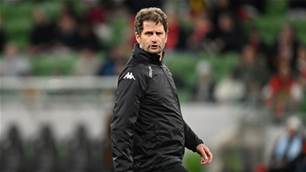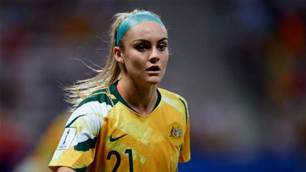One of the pioneers of Australian football, Heather Reid AM, is concerned about the lack of female voices at FFA’s Congress and says women need to be involved in all aspects of the decision-making process.
Reid was recently CEO of Capital Football for 12 years making her the only female leader of a state football federation, and was also the CEO of Canberra United FC for the first nine seasons of the W-League.
Previous to that she ran Australian Women’s Soccer from 1986 to 1993.
Currently Australia has only 10 votes in its Congress and is the lowest electorate of any FIFA member nation, in addition there are no females on the Congress.
Reid is part of a taskforce called Women Onside that features a number of prominent women, including former national players with vast experience in football.
Women Onside would like two of their members to be part of FIFA’s Congress Review Working Group when they arrive in Australia next month.
Their main objective is to remind the world governing body that, as per their own statutes, there must be regard for gender equity within the Congress.
“The most important thing is that the Congress must include women,” Reid said.
“The models that have been put forward are far from providing gender equity.
“If it’s one woman out of fifteen, sixteen or seventeen on the Congress, it’s better than none.
“But there is a view that it should be at least three or four, at least 20 % representation of women so that there is broader input, greater diversity of opinion into decision making and women have their own voice at the table rather than relying on the voices of others.”
Reid said that while having two representatives of the women’s game on the Congress is more equitable than the current situation of zero, it’s also a smart business choice.
“At the moment it’s 100% men and the male voice is a fairly homogenous white, Anglo Saxon one,” she said.
“If you look at the way businesses are run with a greater diversity of voice and inclusion of a broader range of representatives, it makes good business sense.
“Some would argue that 30% representation of women is the threshold for being able to make a meaningful difference when it comes to changing the culture as well as influencing decisions about where and how resources are allocated.
“FIFA research clearly shows that the women’s game would improve if there is more investment and more resources given to women’s competitions and women in football.”
In Australia there are over 250,000 female football players and Reid feels that this growing sector of the game needs better representation.
“How we get equity for women plus continuing to build the strength of the Matildas and professional players, and how we effect more cultural change is the biggest challenge,” she said.
“Women can have an effect by changing the composition and dynamics of the Congress.
“It’s not necessarily the case of who shouts the loudest. It’s a case of who is the most strategic and effective at helping governing boards make better, more informed decisions.
“I remember in 2016 in Zurich when the newly elected FIFA President, Gianni Infantino told a women’s leadership forum that gender equity needed to be a priority for football.
"In response FFA board member Moya Dodd suggested that ‘women are part of the solution to the problems that have plagued football.'
“Two years later, I feel the same untapped resource of women is ready to help improve the performance and profile of football as well as the bottom line for the game in Australia.”
Related Articles
.jpeg&h=172&w=306&c=1&s=1)
Former FIFA interim president Issa Hayatou dies

'Timing not right': Montemurro's verdict on Matildas vacancy













